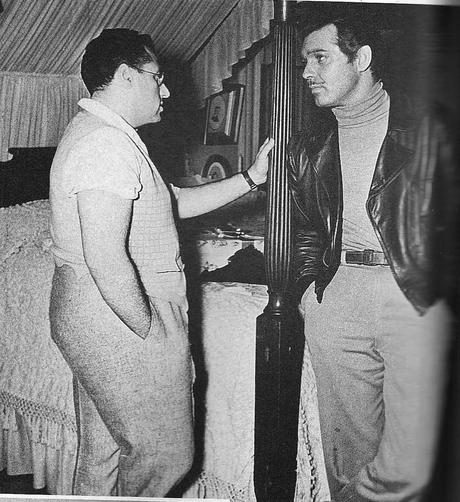American film and stage director GEORGE CUKOR died. It is impossible to over-estimate the importance of Cukor to Hollywood film history. He made so many good films but here are a few: Tarnished Lady, Our Betters, Little Women, David Copperfield, Camille, Holiday, The Women, Philadelphia Story, Gaslight, Winged Victory, Adam’s Rib, Born Yesterday, Pat and Mike, It Should Happen To You, A Star is Born, My Fair Lady, Love Amongst the Ruins, and The Corn Is Green. Cukor was a homosexual gentleman of the old school. The courtly and prolific film director did his best to play straight by the rules, even when the rules didn’t play straight by him.
Though his sexuality was a virtually open secret, Cukor, always mindful that any public violation of the studios’ standard “moral turpitude” clause could cost him his career, didn’t question the prevailing rules of his day. Dropping his guard only in the company of a circle of trusted friends he nicknamed “the chief unit,”
Cukor held private Sunday afternoon pool parties that were unabashed all-boy affairs; the rest of the week, he reverted to the role of “extra man,” a congenial dinner partner always seated beside either a mogul’s wife or one of his celebrated actresses. Yet, when push came to shove, a lifetime of discretion could not protect him from what today would be recognized as blatant homophobia
Patrick McGilligan reports in his penetrating biography, George Cukor: A Double Life, that Cukor was fired from Gone with the Wind, the most famous movie ever made, because its star, Clark Gable, exploded on the set, “I won’t be directed by a fairy! I have to work with a real man!” The story had long circulated within Cukor’s social circle that as a young man Gable had once had a drunken sexual encounter with silent screen actor-turned-decorator William Haines, one of Cukor’s pals. When another of Cukor’s intimates began indiscreetly joking that “George is directing one of Billy’s old tricks,” Gable, who already feared that Cukor, known in the business as “a woman’s director”, might tilt the movie in favor of Vivien Leigh, flew into a rage.
Cukor’s six-acre estate above Sunset Plaza was famous throughout the 1930s and ’40s for the glittering lists of celebrities, ranging from Greta Garbo and Aldous Huxley to Simone Signoret and Henry Miller, whom Cukor entertained. But once the guests left his formal Sunday brunches, the director would then set up a buffet of leftovers poolside and a constantly changing parade of young men would begin to arrive. As the Baroness d’Erlanger once teased him, “Mr. Cukor has all these wonderful parties for ladies in the afternoon. Then in the evening naughty men come around to eat the crumbs!”
